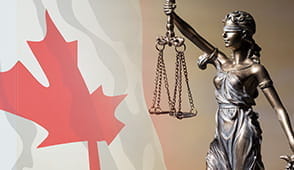Internet Gambling Laws Canada
I’ve searched the internet far and wide to find the answer to this question. Some say yes, others say no, but what I got out of it all was the fact that it is only legal to gamble at places licensed by the Canadian Government. Technically this would make it not legal to gamble online in Canada, unless of course you’re playing at the Provincial casinos currently running online. There have been no laws written, as far as I know, specifically outlawing or allowing online gambling. This puts it in a “grey area” since it’s not really legal or illegal.
Internet Gambling Laws Canada Breaks
Big changes by Ontario Lottery and Gambling may change how and where people in the province gamble. Technically this would make it not legal to gamble online in Canada. Laws written, as far as I know, specifically outlawing or allowing online gambling.
Internet Gambling Laws
There is however, an old Canadian law that states that it is unlawful to be found in a “common betting house”, which some think could be used against someone who is gambling online, but nobody playing in Canada has ever been prosecuted. Even in the US, in the states with laws against it, it is very rare for an individual to be charged. In one of those rare cases that I found, a person had to pay a $500 fine for a $100,000 online poker win (and since he’s in the US, probably a much larger sum for taxes). Authorities in the US have been targeting the banks and companies that process online gambling transactions for US players, rather than going after individuals.
The attitude here in Canada is much more relaxed. It appears that the provinces are going with the flow and opening their own online casinos to compete in the current market rather than fight. There was one company charged for running an online casino in Canada, back in 2001, but that’s the only case I could find that had anything to do with online gambling.


One interesting fact that not many people may know, is that there are many online casinos that are already licensed and regulated in Canada by the Kahnawake Gaming Commission (Est. 1996) in Quebec. The Kahnawake Gaming Commission has been licensing and regulating online gaming since July 8, 1999 – longer than almost any other jurisdiction in the world. One of their rules for being licensed by them, is that the online casino must be located on Kahnawake land, on their secure servers. There have been questions about the legality of the Kahnawake Gaming Commission running in Canada, for quite a few years now, but no action has ever been taken.
Online Gambling Law
Golden Tiger Casino is one of the many trustworthy online casinos that are licensed by the Kahnawake Gaming Commission.

One funny thing about the situation in the US – there are now US land-based operations, like FoxWoods, launching online casinos in Europe where it is perfectly legal and US players are not allowed to play there. There are still some US friendly online casinos that Americans can to play at, but depositing and withdrawing is becoming difficult.

Update on the US situation for those who care… Much like their stance on pot in their war on drugs, some US states are completely flipping their stance on the subject and launching their own online casinos and poker sites. So after spending millions of taxpayer dollars to combat online gambling, seizing millions of dollars from big companies like PokerStars, and stopping as many Americans as possible from gambling online, they are now “allowing” US players to gamble online. How’s that for freedom eh?
Most Canadian provinces are considering launching their own online casinos, and BC actually recently launched one but it is only available to residents of BC. Quebec also just launched an online poker site, again restricted to residents of Quebec. Ontario has plans to open one in 2012, and New Brunswick may be next.
I’ve heard of some banks questioning your transactions to and from online casinos, and some credit card companies don’t allow transactions for gambling, so I like to use an “e-wallet” like Instadebit (Canadian company). I’ve never had any questions arise from transactions using those.
Disclaimer: I’m not a lawyer, so do not take this as legal advice, and I do not condone illegal activities.